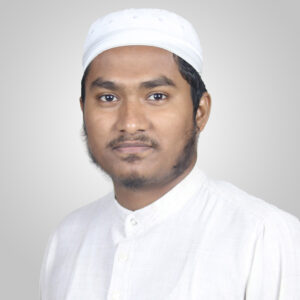When you hear the words “Islamic microfinance,” what comes to mind? Small loans, savings groups, perhaps temporary relief? Useful, yes—but often limited. What about real transformation? What about giving people the tools to lift themselves out of poverty, build businesses, and secure their families’ futures? That’s exactly what Islami Bank Bangladesh PLC (IBBPLC) has been doing for decades.
Founded in March 1983, IBBPLC holds the distinction of being the first Shariah-based scheduled commercial bank in South and Southeast Asia. Today, it is the largest commercial bank in Bangladesh, operating as a joint venture public limited company with 400 branches, 271 sub-branches, and 2,783 Agent Banking Outlets. Its services go far beyond traditional banking, offering mobile financial services, offshore banking, a network of subsidiaries, and impactful CSR initiatives—all grounded in Islamic Shariah. But perhaps its most transformative impact lies in Islamic microfinance.
Since 1995, the Bank’s Rural Development Scheme (RDS) has been turning millions of rural poor into successful entrepreneurs through Shariah-compliant, interest-free microfinance. Today, the program reaches approximately 1.74 million members across 34,801 villages, with women comprising 92% of beneficiaries. Graduated clients who successfully manage their micro-investments can move into larger-scale financing under the Bank’s microenterprise scheme. With a loan recovery rate of over 99%, RDS demonstrates that poverty alleviation and financial inclusion can go hand in hand.
So how does it work? Field officers visit potential villages, selecting locations based on proximity to bank premises, availability of agricultural and non-agricultural activities, and the percentage of low-income families. Small groups of five members living in the same village are formed, and multiple groups come together to create a “center” led by elected leaders. Every member opens a Mudaraba savings account, contributing Tk. 100 per week, alongside Tk. 10 to a Qard-e-Hasan fund that extends interest-free loans to the extremely poor. Weekly center meetings are conducted by bank officers, covering financial responsibilities, investment approvals, and moral and social guidance.
After just eight weeks of positive observation, members can access investment financing. No collateral is required—the scheme relies on a group guarantee system, with every member personally responsible for one another’s repayment. Initial investments start at around Tk. 50,000 and increase by Tk. 30,000 or multiples thereof as members demonstrate good repayment behavior. The rate of return is 9.1% based on profit-and-loss, but timely repayment earns a 2.5% rebate, reducing the effective rate to 6.6%, far lower than conventional MFIs in Bangladesh.
RDS goes far beyond microfinance. Members benefit from newborn gifts, emergency support in times of bereavement, unconditional aid for the extremely poor, scholarships, eco-friendly rural projects, timber and fruit plant distribution, pre-primary education, and inclusive programs for ethnic minorities. Centers also provide skill training, environmental awareness, and entrepreneurship guidance, ensuring members are not only financially included but truly empowered.
The impact is tangible and inspiring. Mahbuba Ara, from Patenga, transformed her talent in needlework and home décor into a growing business. Starting with embroidered quilts, cushions, and curtains, she received a Tk. 20,000 RDS investment in 2019. With guidance from the Bank and community support, she trained local women, created a production network, and opened a showroom alongside online sales. Her investment grew to Tk. 1.2 lakh, and her savings exceeded Tk. 80,000.
Similarly, Ruksana Begum, a flower entrepreneur from Gotkhali, began with a small family plot, receiving Tk. 8,000 from RDS in 2006. With continued support and subsequent investments—now totaling Tk. 200,000—she expanded into a thriving flower business, generating savings of over Tk. 50,000. Ruksana credits RDS not only for financial support but also for education stipends, sanitation, and healthcare initiatives that transformed her family’s life. Today, she is a respected figure in the Tk. 10 million weekly flower trade of Gotkhali.
Jyotsna Rani Paul, an earthenware artisan from Jashore, exemplifies resilience and integrity. A member since 1999, she has never defaulted on a single installment, even during the COVID-19 pandemic. Jyotsna produces earthen pots for sweets and curd, supporting her community while benefiting from steady RDS investments. Her weekly payments include Tk. 250 installments and Tk. 110 savings, alongside contributions to center and MSS funds. Meetings begin with readings from both the Quran and the Geeta, reflecting the Bank’s inclusive and harmonious approach.
These stories are just a glimpse of IBBPLC’s impact. Millions of rural families now have the tools, guidance, and confidence to dream bigger, earn sustainably, and stay out of poverty. RDS demonstrates that microfinance, when combined with Shariah principles, vision, and compassionate support, can do far more than provide loans—it can transform lives, empower communities, and create lasting social change.
👉 If you’d like the visual version, here’s the presentation link.
Check this to learn more about that.
#Islamic_Social_Finance #Microfinance #Islamic_Microfinance #Microfinance_Case #Social_Impact


